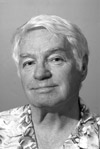My Field of Dreams
Barney Remembers His Days on the Mound
HERE’S TO THE LOSERS: There are about 1,000 players in major league baseball, but every season I’m reminded of the guys who had potential but didn’t make it.
Like Donny. Too many seasons ago to count, we were teenagers, playing on a rutted, weedy South Side Chicago sandlot. I admired Donny as he played shortstop, his seeing-eye glove scooping up balls that hopped crazily on the dirt infield. He was a dark-haired, handsome kid with nice manners, something most of us didn’t bother with.

I was an outfielder, chasing balls through the knee-high weeds, hopping over gopher holes, and a total flop as an infielder. Some, however, are born to greatness, like my schoolmate in a previous neighborhood, Sammy Esposito. Sammy was not a big bruiser, but he went on to be a championship Chicago high school quarterback, play basketball for Indiana University, then spend 10 seasons in the major leagues, mostly with the Chicago White Sox as an infielder. I never saw a more graceful player.
I saw much of that in young Donny, the way he used his oversized glove and soft hands to smoothly gather in any ball hit near him and make a perfect throw to first.
His swing, too, was picture-perfect, while the rest of us had a tendency to lunge. But Donny could hardly run. It wasn’t due to some ordinary playground injury. Something, perhaps a childhood accident or disease, hobbled him. It was sad to watch Donny try to get to ground balls or run out hits. I sincerely believe that with normal legs, Donny could have been a star. Just how far he could have gone, I can’t say. Maybe as far as Sammy Esposito.
To me, Donny symbolizes the legions of those who have the raw ability but never made it. Some never had a chance. Others came tantalizingly close. The small town hero whose pitching arm gave out in rookie leagues. The spring training “fee-nom” who hit .450 in March, then .123 in the Three-I League and went back to his dad’s farm. Our high school’s first baseman was tall, graceful, and could hit. But in pro tryouts, scouts sent him to the park leagues. He didn’t have a major league arm and never would.
You could write books of sad stories. A guy batting .380 in Triple A, a phone call away from the bigs, slides into second to break up a double play in some meaningless game on a steamy Midwestern night in a nameless burg. The guy breaks a leg and is never the same. His career is kaput. Another top prospect runs into a wall at a tank-town outfield and never gets over the headaches and blurred vision.
Once in a while, we played in a park with real grass. A squat guy, maybe 40, liked to catch warm-ups. “I could have made the majors except that I hurt my arm throwing from a crouch,” he told us. Which might even have been true.
Our regular catcher was Dick Post, who, after one sandlot season, told me, “I strained my milk to hit .400 in this league.” My brother Bruce and I probably hit half that, if you added both our batting averages. I carry a certain measure of guilt about Dick. In one game, he was on third and I was coaching. “Dick,” I told him, “when the catcher starts to make one of his easy throws back to the pitcher, you steal home.” That’s exactly what Dick did on the next pitch. I don’t remember whether he was safe or out, but he broke his leg. For the rest of the season he caught and hit wearing a brace, and I was allowed to run for him. But even before that, Dick never went out for high school baseball, and I never knew why.
Contrary to today’s parents who swarm to their children’s playing fields, sitting on beach chairs, swigging lemonade and cheering, our parents paid little attention to our strenuous efforts in sandlot baseball and football a block or two away. They attended to adult matters and not the trivial games of their children.
We kids also had to earn money on our own to buy bats, balls, and gloves. I played football with minimal protective gear. Nor did the disgraceful condition of the rutted field lead the parents to pool their efforts to improve it. Whoever built the subdivision of neat brick duplexes left space for a sports field but never built it.
We stuck a thick steel bar in one spot to be second base. My shop teacher umped the games, and one of our guys later married his daughter. A raised manhole cover in the center of the field was the 50-yard line.
Even if the field had been manicured like Dodger Stadium, I still wouldn’t have been a star. I was fleet of foot but flailed foolishly at curves. But I have memories of that rutted field and my friends who never made it either.



